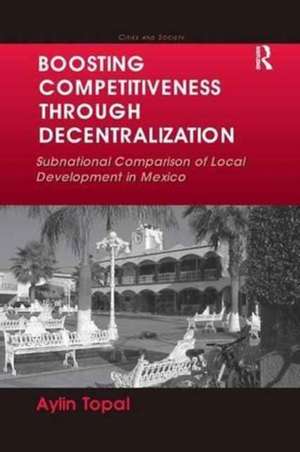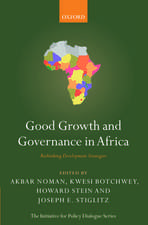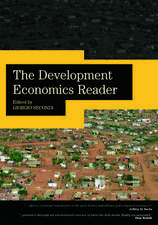Boosting Competitiveness Through Decentralization: Subnational Comparison of Local Development in Mexico: Cities and Society
Autor Aylin Topalen Limba Engleză Paperback – 17 noi 2016
| Toate formatele și edițiile | Preț | Express |
|---|---|---|
| Paperback (1) | 322.97 lei 6-8 săpt. | |
| Taylor & Francis – 17 noi 2016 | 322.97 lei 6-8 săpt. | |
| Hardback (1) | 697.85 lei 6-8 săpt. | |
| Taylor & Francis – 13 sep 2012 | 697.85 lei 6-8 săpt. |
Preț: 322.97 lei
Nou
Puncte Express: 484
Preț estimativ în valută:
61.81€ • 64.36$ • 52.24£
61.81€ • 64.36$ • 52.24£
Carte tipărită la comandă
Livrare economică 10-24 martie
Preluare comenzi: 021 569.72.76
Specificații
ISBN-13: 9781138268623
ISBN-10: 1138268623
Pagini: 168
Dimensiuni: 156 x 234 mm
Greutate: 0.45 kg
Ediția:1
Editura: Taylor & Francis
Colecția Routledge
Seria Cities and Society
Locul publicării:Oxford, United Kingdom
ISBN-10: 1138268623
Pagini: 168
Dimensiuni: 156 x 234 mm
Greutate: 0.45 kg
Ediția:1
Editura: Taylor & Francis
Colecția Routledge
Seria Cities and Society
Locul publicării:Oxford, United Kingdom
Notă biografică
Professor Aylin Topal, Middle East Technical University, Turkey.
Recenzii
'This is a work of exceptional quality in which Aylin Topal delivers unique insights on the territorial fragmentation of space and political authority in Mexico, which has taken the form of decentralisation policies introduced in lockstep with neoliberalism. For anyone wanting to understand the coupling of uneven development and authoritarian neoliberal policies this book is a must-read.' Adam David Morton, University of Nottingham, UK ’Topal brilliantly explains the deepening of north-south regional differences within Mexico as the main outcome of decentralization policies. For her, democratization is not an intrinsic by-product of decentralization, it only carries potential changes in the State-Economy relation, thus explaining Mexican developmental variations. Her local findings have universal validity for understanding neoliberal experiences in emerging economies.’ Alejandro Alvarez Béjar, UNAM, México
Cuprins
Chapter 1 Introduction, Aylin Topal; Chapter 2 Toward a Political Economy Approach to Decentralization, Aylin Topal; Chapter 3 Decentralization Policies in Mexico: Reshaping Forms of Interest Representation and State Intervention, Aylin Topal; Chapter 4 Public–Private Part nership Leads Local Development: Entrepreneurialism in Chihuahua, Aylin Topal; Chapter 5 Oil Production as the Dominant Force: Authoritarian State-Led Local Development in Tabasco, Aylin Topal; Chapter 6 When Business Class Allies with a Strong Indigenous Peasant Movement: Contested Local Development in Guerrero, Aylin Topal; Chapter 7 Conclusion, Aylin Topal Author's Interviews, Aylin Topal;
Descriere
This book examines the relationship between global economic processes and decentralization. It argues that through decentralization policies, the imperatives of neoliberal rules of competitiveness have been diffused into local governments and economies, generating different local development models. Whether decentralization produces democratic opening at the local level is contingent on how the local economy is integrated into global economic processes, and which social and economic groups are empowered, and disempowered, in that transition.


























